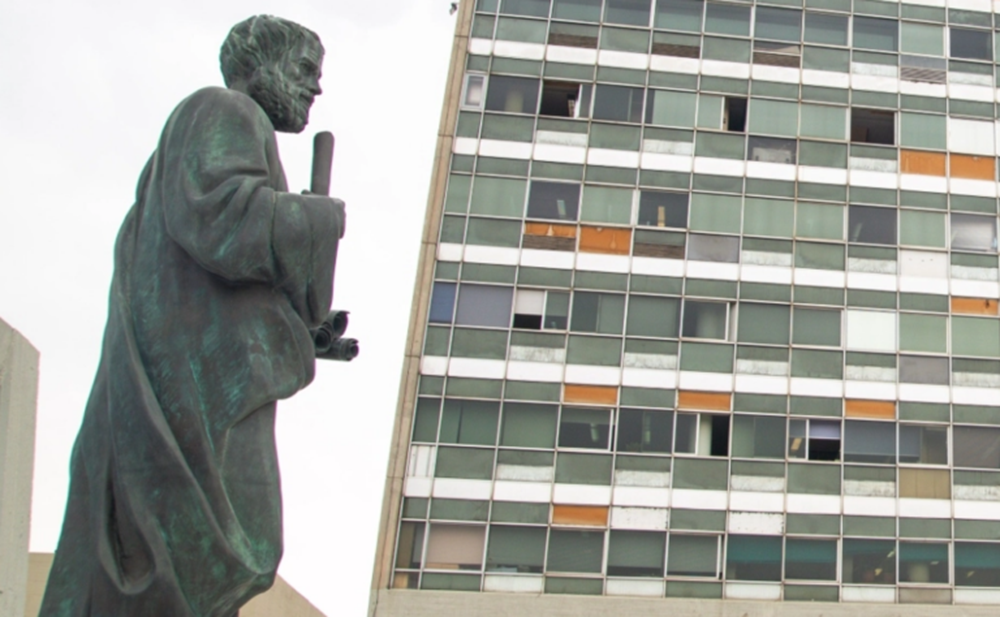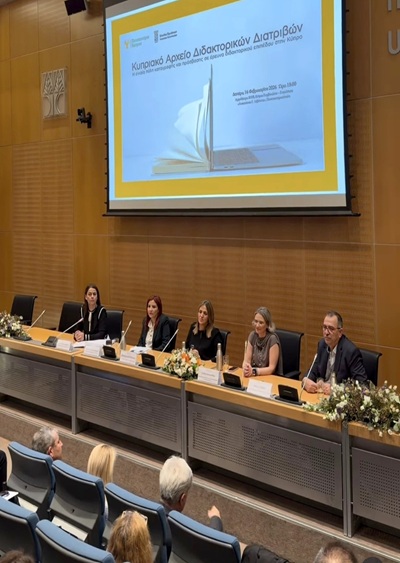
The Aristotle University of Thessaloniki is participating in an important national initiative for the digitization and creation of a single national database of Natural History Collections. This action, funded by the Ministry of Environment and Energy, through Greece 2.0 of the National Recovery and Resilience Plan (NextGeneration EU), aims to enhance the protection of biodiversity and promote sustainable development in Greece. The project is a key objective of the Agency for the Natural Environment and Climate Change (OFYPEKA), which operates with the protection of the natural environment and sustainable development in Greece.
In the framework of the project, the Aristotle University of Thessaloniki will digitise a significant part of the collections of fauna, flora, minerals/rocks and fossils, which have been collected by the scientific staff of the institution for 70 years. In particular, from the collections of animal and plant specimens of the Zoology and Botany Section of the Department of Biology, and the collections of mineral/rock and fossil specimens of the Geology-Paleontology-Paleoanthropology Museum of the Department of Geology, a total of 392 056 specimen records in digital databases of international standards will be digitized, as well as 39.206 digital photographs of representative specimens and 1.307 3D digital representations.
Στο πλαίσιο του έργου, το ΑΠΘ θα ψηφιοποιήσει ένα σημαντικό μέρος των συλλογών πανίδας, χλωρίδας, ορυκτών/πετρωμάτων και απολιθωμάτων, που εδώ και 70 χρόνια συλλέγονταν από το επιστημονικό δυναμικό του ιδρύματος. Συγκεκριμένα, από τις συλλογές δειγμάτων ζώων και φυτών του Τομέα Ζωολογίας και Βοτανικής του Τμήματος Βιολογίας, και τις συλλογές δειγμάτων ορυκτών/πετρωμάτων και απολιθωμάτων του Μουσείου Γεωλογίας-Παλαιοντολογίας-Παλαιοανθρωπολογίας του Τμήματος Γεωλογίας, θα διαμορφωθούν συνολικά 392.056 εγγραφές δειγμάτων σε ψηφιακές βάσεις δεδομένων διεθνών προτύπων, 39.206 ψηφιακές φωτογραφίες αντιπροσωπευτικών δειγμάτων, και 1.307 τρισδιάστατες ψηφιακές αναπαραστάσεις.
Many of these specimens are unique in the world, representing a significant part of the national and global geo-bioheritage and constitute an invaluable national infrastructure for the study and assessment of biodiversity and its relationship with environmental change over time.
At the end of the project, database records, photographs and 3D images will be immediately available, publicly and free of charge. Access, however, will be classified in terms of the metadata that will accompany each digital record, as it may contain unpublished and/or sensitive data, such as geographic information on the location of rare or endangered plants and animals, or locations of unique fossil specimens.
In this way, the Natural History collections of the Aristotle University of Thessaloniki will be included in international databases, highlighting the immensely important endemic flora and fauna of the Aemos peninsula. Thus, they will form the basis for providing the knowledge needed to address critical issues facing the environment and society, such as documenting biological and geological diversity in an unprecedented era of environmental crisis, understanding the impacts of climate change and other environmental threats, determining the impact of invasive species on ecosystems, and monitoring changes in environmental resources, contributing to the country’s adaptation to new challenges.







Leave A Comment